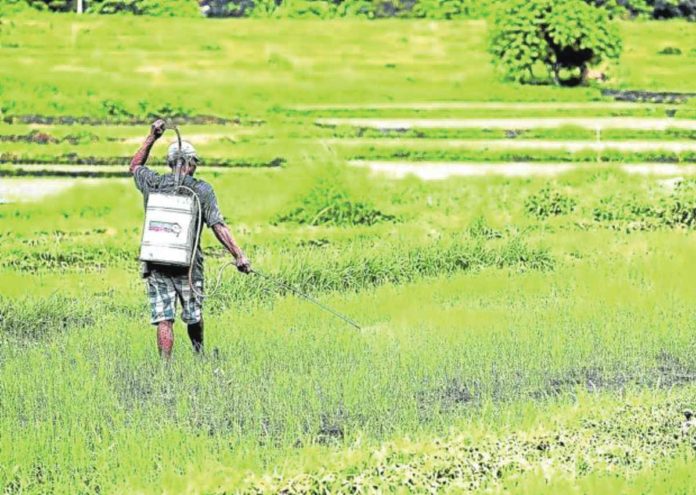
MABALACAT City – To significantly increase rice and eventually become self-sufficient in rice production, Vietnamese methods and technologies should be adopted in the Philippines, President Ferdinand Marcos Jr. said on Saturday.
Marcos, who was in Mandasig village in this town to lead the ceremonial palay harvesting and the distribution of assistance to farmers, recalled that during his state visit in Vietnam a few days ago, Agriculture Secretary Francisco Laurel Jr. went around several farmlands in that country to observe their new technologies and methods that result in high rice yield.
The President also led a ceremonial palay harvesting process in a rice land area in Barangay Mandili, also in Candaba, and the distribution of rice seeds and fertilizer to more than 1,000 farmers at the covered court of Mandili National High School.
Marcos said he believes that by adopting the Vietnamese methods, Philippines can significantly increase its rice production. The president said, in his speech at the event in Barangay Mandasig, that Vietnam imports some 3.5 million metric tons of rice yearly to the Philippines.
“We will adopt the (farming) systems that we have seen in other countries that are also applicable here in the Philippines,” he said.
He also said that the national government is making efforts in addressing the threats and effects of El Niño affecting the rice industry sector through intensified water supply programs.
He added that the currently prevailing El Niño is expected to last until June and even until before the end of 2024.
Solar-powered irrigation
Among the methods from Vietnam that Marcos believes that can be implemented in the Philippines is the installation of thousands of units of small-scale solar-powered water pumps that could irrigate rain-fed palay farmlands in different parts of the country.
He said rain-dependent areas are limited to two-cropping seasons per year while properly irrigated farmlands like in Canda town enjoy three-cropping seasons yearly.
“The secret and key to high (rice) yield is irrigation. We will try the solar irrigation system wherein the solar panels will electrify the water pumps,” he said in Filipino during the program.
Marcos said the country’s about 20 million metric tons of rice yield annually will increase by 1.2 million metric tons if the solar irrigation method is implemented.
He said through the planned Philippine solar irrigation project, “thousands and thousands” of small solar-powered pumps will be installed all over the country.
He said each unit can effectively irrigate at least 20 hectares of palay farm.
But Marcos said funding for the said project is still being worked out.
“Once the plan is completed, which we are still starting, that is the solution to our problem. We are still thinking where to get the budget,” he said.
Marcos disclosed that some P31-billion have already been allotted under the national rice program for production support, extension services, research and development and, irrigation network services.
He said large portions of the rice competitive enhancement fund will be used for distribution of farm machinery like tiller, tractor, threshers, rice planters, drier, and others. He added that farmers will also be trained by concerned government agencies in modern farming methods as part of the country’s thrust to modernize the agricultural sector. (Carmela Reyes-Estrope, Jun A. Malig © Philippine Daily Inquirer)



